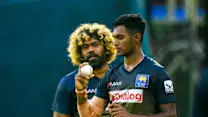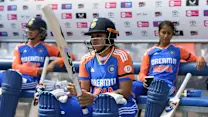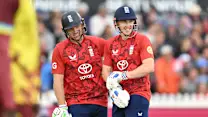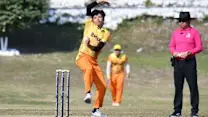News

ICC Men's T20 World Cup, 2026
Sri Lanka rope in T20 WC winning skipper as consultant coach

Women’s Rankings
India batter closes in on top ranking after more T20I runs

ICC Men's T20 World Cup, 2026
England name provisional squad for T20 World Cup 2026

ICC World Test Championship
Bethell wants to cement Test No.3 role for England in Sydney

News
Bhutan’s Sonam Yeshey sets new T20I bowling record
Editor's Picks
ICC World Test Championship
Anderson weighs in on England's tactics at the AshesICC Women's Emerging Nations Trophy, 2025
ICC Women’s Emerging Nations Trophy Day 5 wrapICC World Test Championship
Bavuma in awe of South Africa's 'massive' feat in IndiaICC World Test Championship
ICC World Test Championship 2025-27: State of Play
